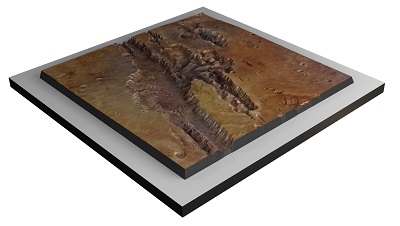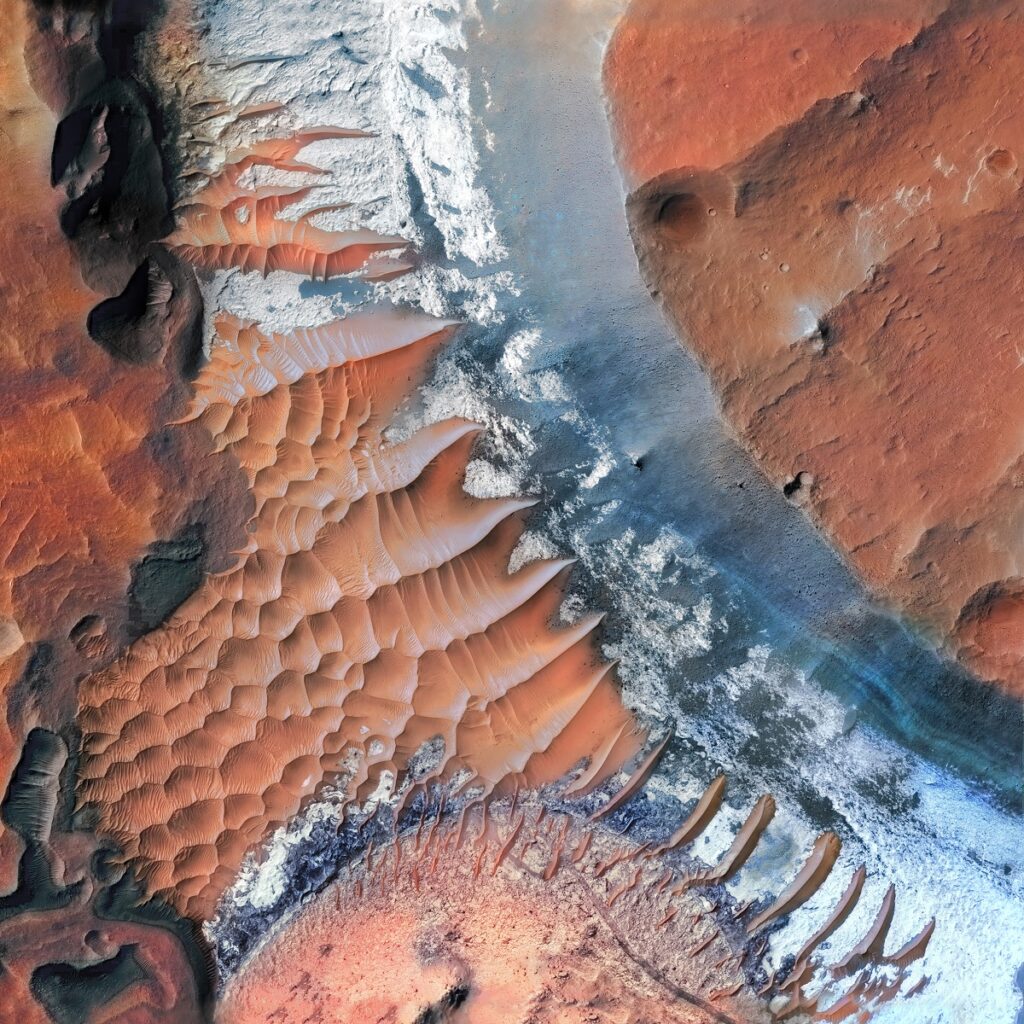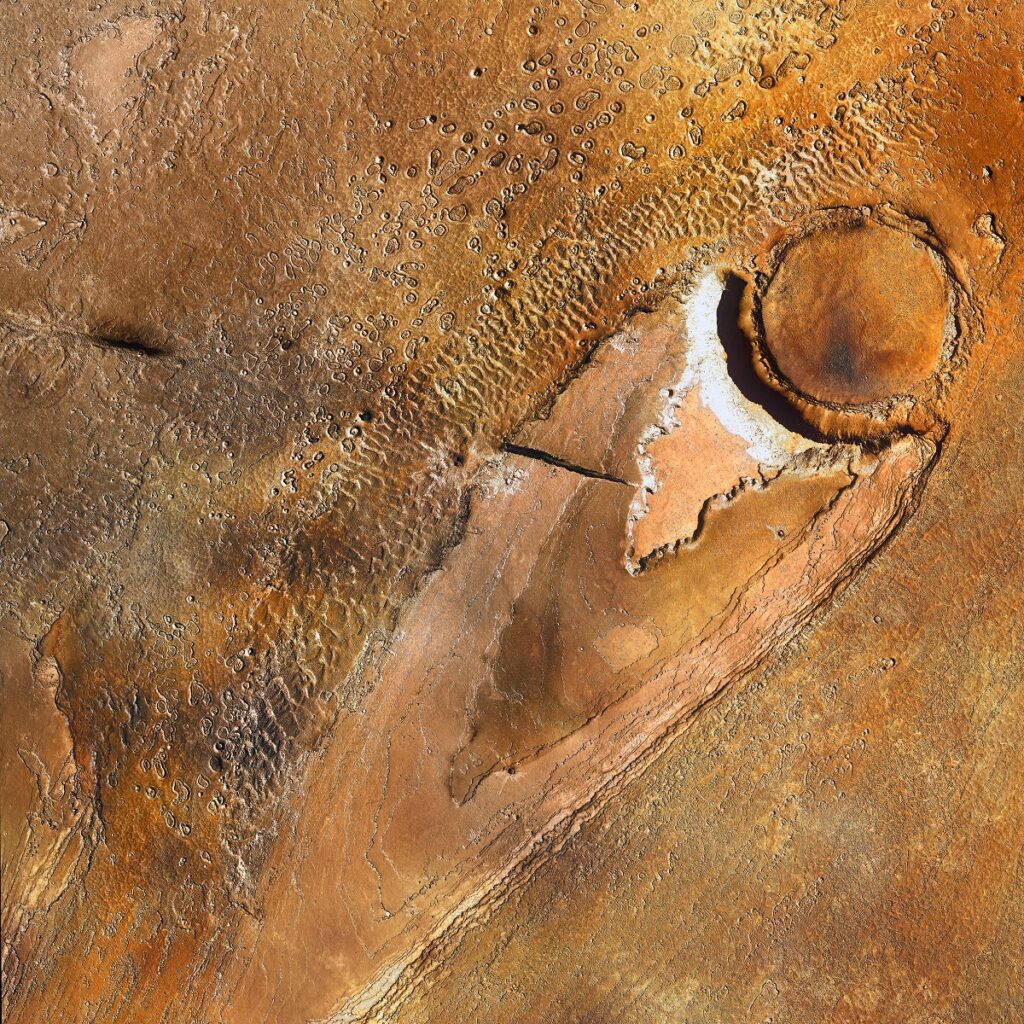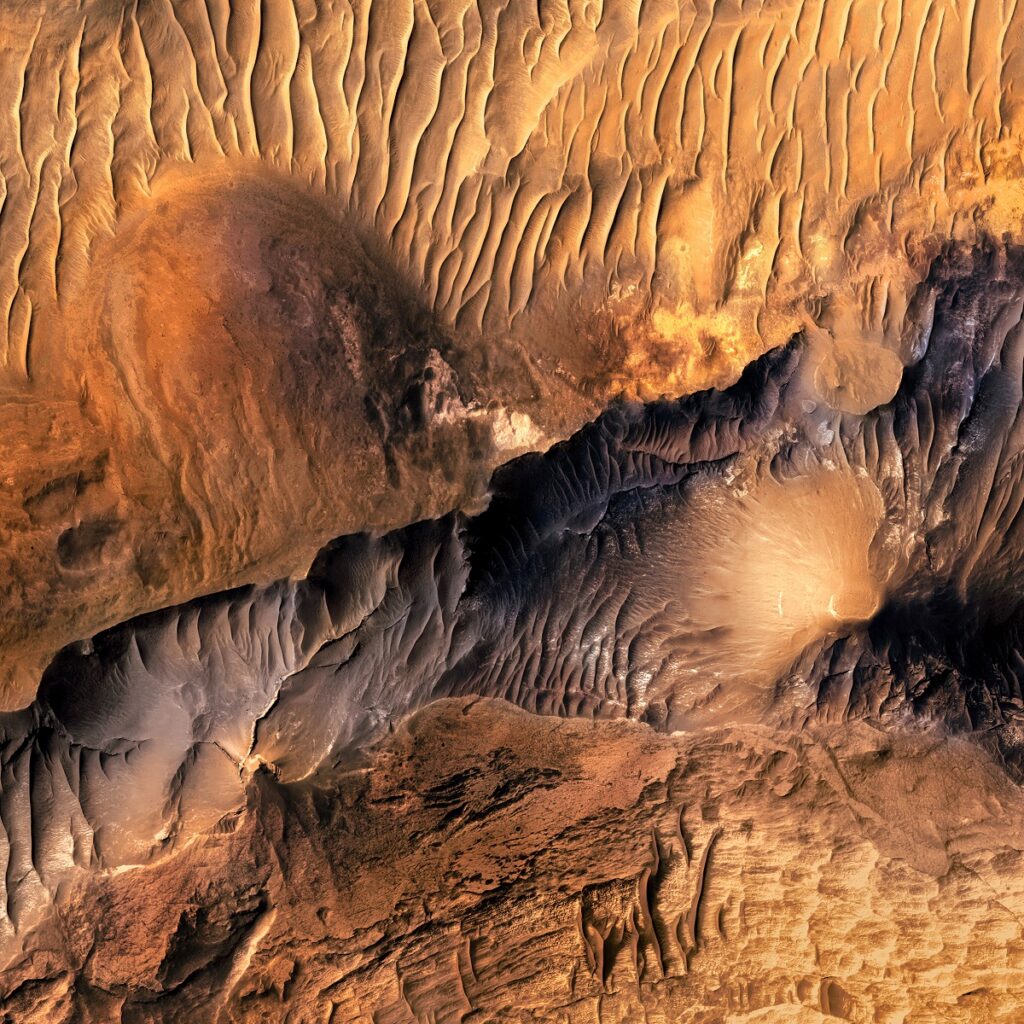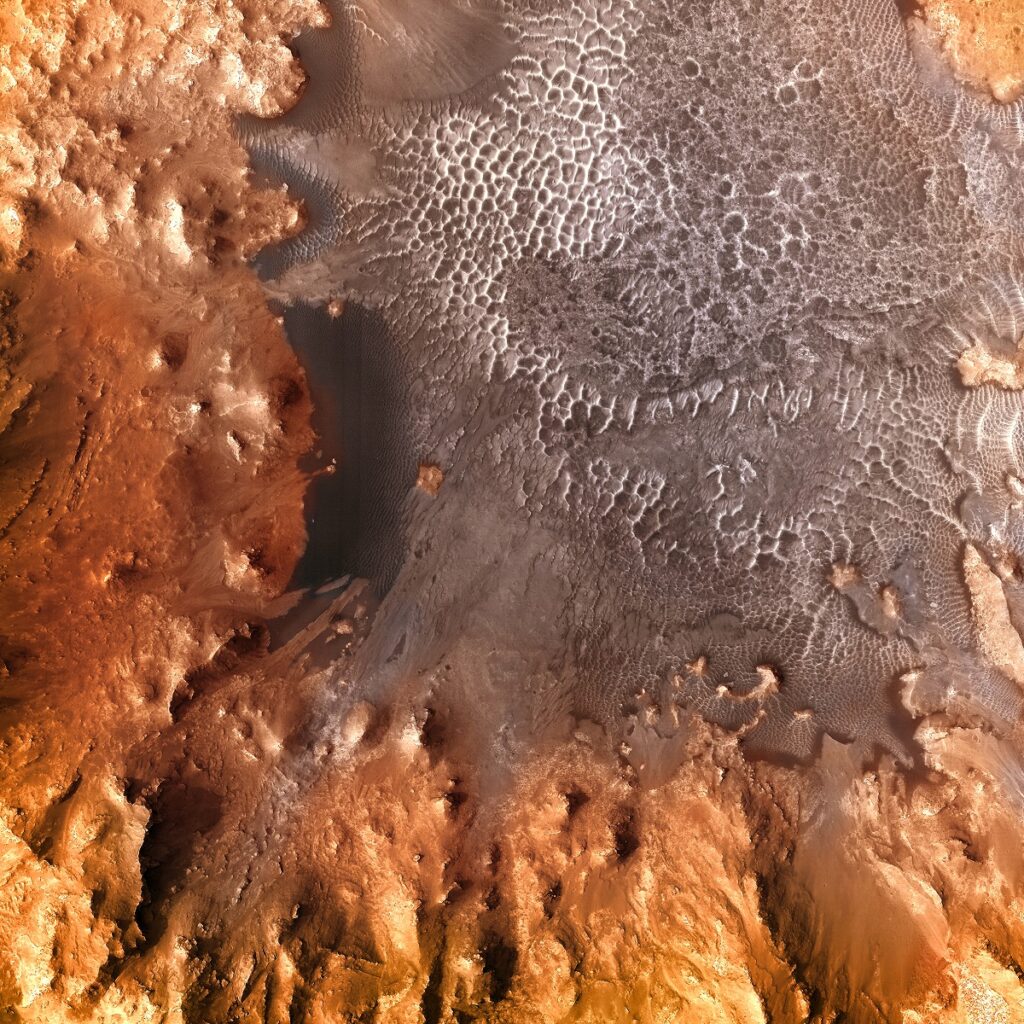How Long does it take Mars to Orbit the Sun?
How Long does it take Mars to Orbit the Sun?
WhiteClouds Builds 3D Marscapes and Canvas Prints
How Long does it take Mars to Orbit the Sun?
The time it takes for Mars to complete one orbit around the Sun is a topic of significant interest for astronomers, planetary scientists, and those keen on understanding the dynamics of our Solar System. Mars takes approximately 687 Earth days to complete a full orbit around the Sun. This period is known as Mars’ orbital period or Martian year.
Orbital Characteristics
Mars has an elliptical orbit, meaning it is not a perfect circle but slightly elongated. Because of this elliptical shape, Mars experiences varying distances from the Sun throughout its orbit. This aspect also causes minor variations in its orbital speed, making some parts of the Martian year slightly shorter or longer in terms of time.
Comparison with Earth’s Orbit
To put Mars’ orbital period into perspective, Earth takes about 365.25 days to orbit the Sun. That means a Martian year is roughly 1.88 Earth years long. This longer orbital period has implications for the planet’s climate, including its longer seasons compared to Earth.
Seasons on Mars
Just like Earth, Mars has four seasons: spring, summer, autumn, and winter. However, because Mars takes longer to orbit the Sun, each Martian season is also longer. The planet’s axial tilt is about 25.19 degrees, which is quite similar to Earth’s axial tilt of about 23.5 degrees. This means Mars experiences seasonality similar to Earth, but the length of each season is extended due to its longer orbital period.
Implications for Missions to Mars
The orbital period of Mars has critical implications for missions sent from Earth. Because Mars takes about 687 days to complete an orbit, optimal launch windows for missions to Mars occur roughly every 26 months. This is when Earth and Mars align in a way that minimizes the distance, energy, and time required to travel between the two planets. Planning a mission to Mars requires precise calculations to take advantage of these windows.
Gravitational Resonance and Interactions
Mars’ orbit isn’t entirely stable over extremely long periods because of gravitational interactions with other celestial bodies, most notably Jupiter. While these changes are minimal and take place over tens of thousands to millions of years, they are a subject of study for astronomers interested in the long-term stability and evolution of the Solar System.
Calendar Systems
Given the longer Martian year, a Martian calendar would also differ from Earth’s. Several proposals for a Martian calendar have been suggested, but none are in official use. A Martian calendar would have to account for the 687-day year and how to integrate months and weeks into this longer time frame.
More About Mars
Contact us today to learn more about our 3D services and how we can help you achieve your goals.

